Charleston Shooting: International Media Spotlights Racism In The US After Deadly Attack
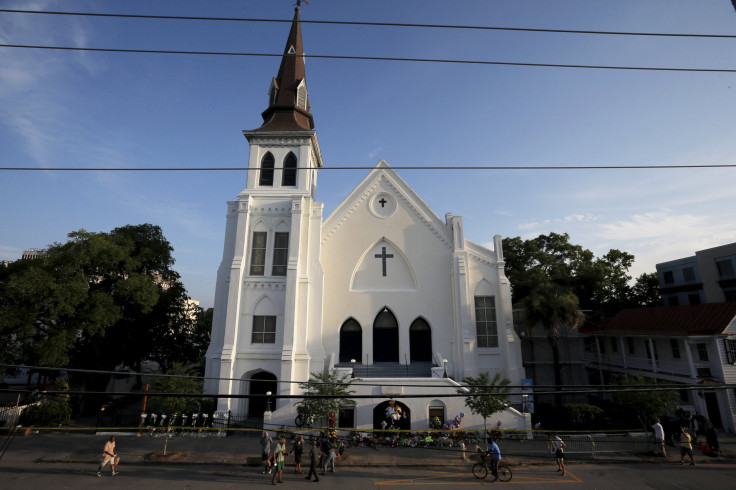
The fatal shooting of nine people at an historic church in Charleston, South Carolina, reverberated across international headlines this week. But while previous high-profile gun attacks in the United States, including massacres in Newtown, Connecticut, and Aurora, Colorado, focused global attention on the U.S.’s longtime struggle with gun control, foreign news outlets saw the shooting in Charleston largely against the backdrop of boiling racial tensions.
The main suspect in the shooting, 21-year-old Dylann Storm Roof, is a white man who had reportedly claimed he wanted to start a race war before allegedly killing nine black churchgoers in the Emanuel African Methodist Episcopal Church. International news reports were quick to blame racial motivations in the shooting, particularly in light of recent U.S. episodes over police aggression against unarmed black men.
Spain’s El País featured four original stories on the shooting Thursday and Friday, with headlines calling it a “racist” attack. “A racist attack stirs the United States’ worst ghosts,” one headline read. The story went on to say, “The incident reveals the tortured path toward racial reconciliation in the country after a year marked by protests over unarmed black men.”
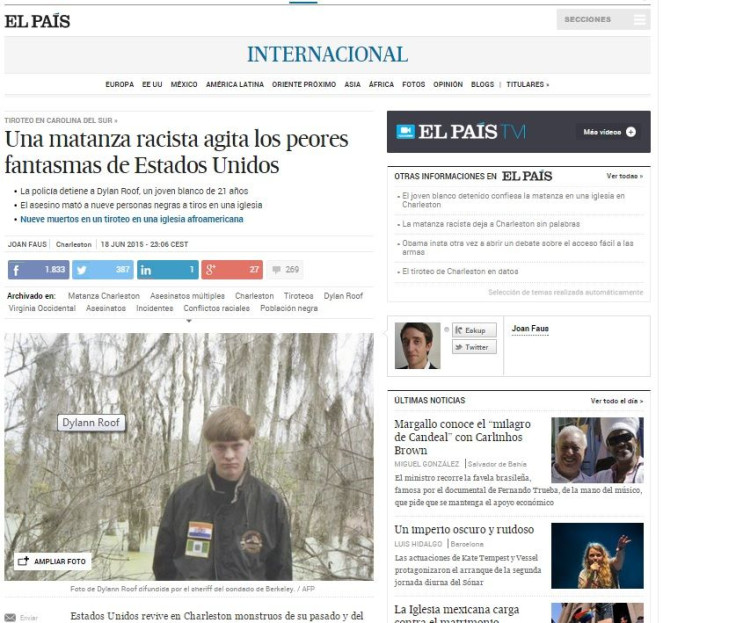
Italy’s moderate-left newspaper La Repubblica featured a story about the shooting Friday morning, paraphrasing Roof’s confession to police as “‘I wanted a race war.’”
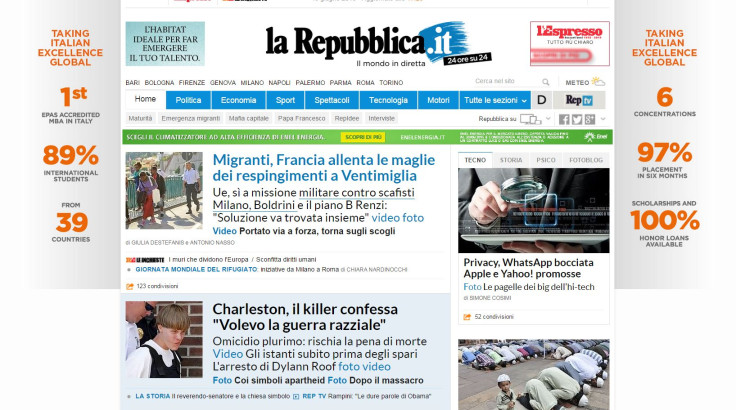
Süddeutsche Zeitung, one of the largest newspapers in Germany, also featured a story on Charleston on its home page, using a quote from Attorney General Loretta Lynch as its headline: “ 'This was an act of terrorism.’ ” Below, the article summary reads: “Did the Charleston shooter act out of hate for all black people? Meanwhile more and more is known about Dylan Roof. He confessed to investigators this was no crime committed in the heat of the moment.”
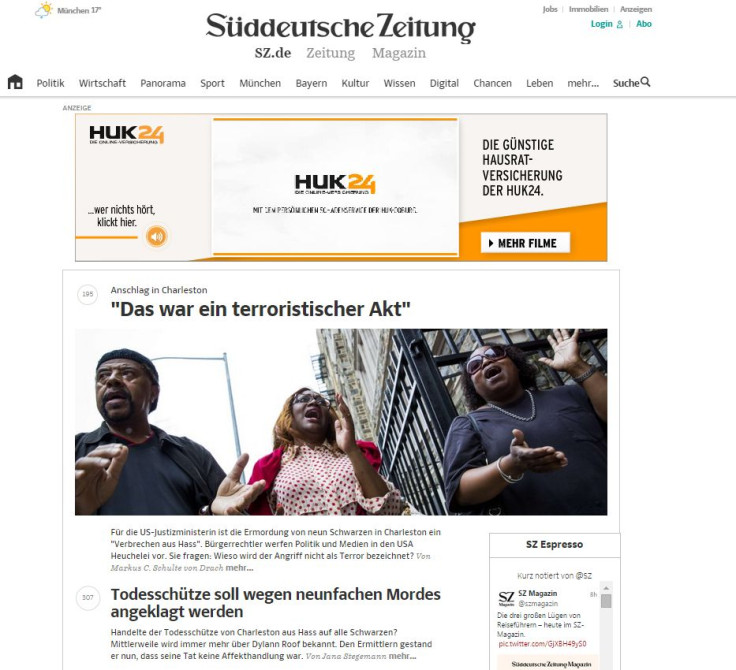
France’s influential, liberal Le Monde newspaper also featured a headline emphasizing that Roof wanted to unleash a “war between the races.”
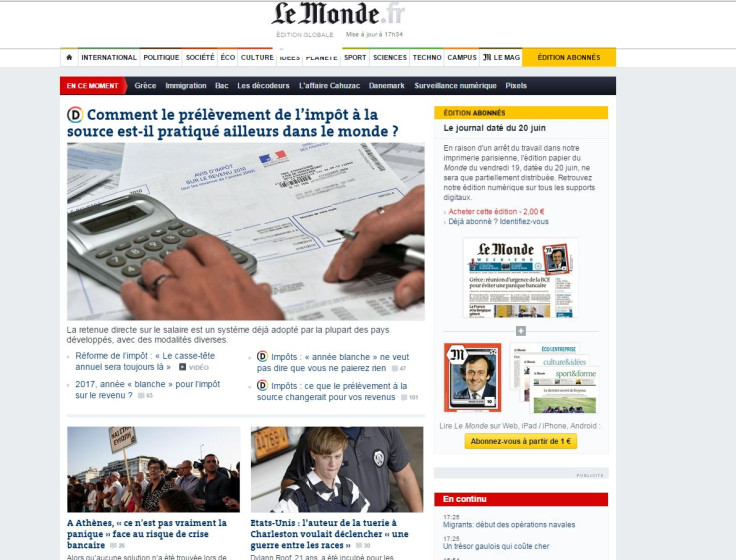
Meanwhile, France24.com pivoted off the Charleston shooting to examine racism in the U.S. with a visit to Los Angeles, 23 years after riots over the police beating of Rodney King.
By Friday afternoon, Argentina’s La Nación had already published nine stories about the Charleston killings, similar to its close coverage of the protests in Ferguson, Missouri, last year. “Massacres and racism, two evils of the United States, combined in a tragedy,” one headline read.
That story described how Wednesday’s attack “adds to the long history of massive killings committed with firearms in the United States,” adding: “But the racist tint of the Charleston shooting also uncovered, yet again, the latent violence that racial minorities in the country are exposed to day after day.” All La Nación’s Charleston stories were under the rubric “Racial tension in the United States.”
In South Africa, some news outlets focused on the question of whether Roof had any ties to the country, given that he had previously been photographed wearing apartheid-era flags from South Africa and Rhodesia, now Zimbabwe. The Mail & Guardian newspaper reported on his arrest Thursday, pointing out that he had worn the two flags in a photo seen on Roof’s Facebook profile. “Both of those nations [South Africa and Zimbabwe] had abandoned apartheid by the time Dylann Flood was born,” the paper wrote. “Both of the flags would have been relatively obscure, in a way that a Swastika flag or even a Confederate battle flag are not.”
In parallel, News Channel Africa assured readers he had “no direct connection to South Africa.”

South African news aggregation site OStudio Post featured an editorial comparing the Charleston incident to a recent controversy over alleged segregation in Curro, a private school in Roodeplaat, South Africa. “Anyone who does not see the Curro situation as something to worry about would most likely not see the Charleston massacre as a problem, because the victims are just black people, it seems. America does not have a good track record on treatment of African Americans, so does South Africa,” the editor, Oliver Pete, wrote. “Is it just a coincidence that the alleged Charleston shooter has a photo on his Facebook profile wearing a jacke[t] that has old apartheid South Africa flag as well as old Rhodesia (Zimbabwe) flag?”
China’s state news agency, Xinhua, reported on the Charleston incident as a reflection of “U.S. inaction on gun violence and growing racial hatred.”
A separate essay published by Xinhua noted: "Due to historical reasons, the race issue is entrenched in American society. The church shootings have once again exposed that racial discrimination in American society is a thorny problem that cannot be avoided."
But while racism was the main focus of foreign news outlets’ reporting on Charleston, some outlets kept their eye on the gun control question in the U.S. -- particularly media in Canada, a country well known for having relatively high gun ownership rates but far fewer incidents of gun-related violence than the U.S.
“Gun control won’t be an election issue in 2016,” wrote the Washington correspondent for Canada’s prominent Globe and Mail newspaper, Paul Koring. “Mr. Obama’s promise of meaningful action after Newtown went nowhere, stymied not just by broad Republican opposition but also by many Democrats.”
In Canada, the website of the Canadian Broadcasting Corporation published a piece Thursday stating that the shooting “once again shows the impotence of U.S. gun laws.”

© Copyright IBTimes 2024. All rights reserved.






















